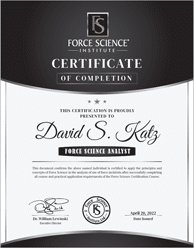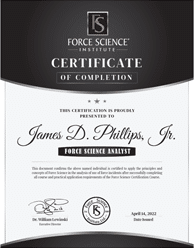Florida Stand Your Ground Lawyer
Origins of Florida’s Stand Your Ground Law
In 2005, Florida became the first state in the nation with a “Stand Your Ground” law, which was found in Florida Statute 776.013. Stand your ground laws remove the duty to attempt to safely retreat prior to defending yourself with either force or deadly force as the situation requires. The 2005 law allowed a person to stand their ground anywhere in the state of Florida as long as they were not engaged in an unlawful activity and were attacked in a place they had a right to be.
In 2014 the legislature rewrote the Stand Your Ground laws located in 776.013 and limited its application only to castle doctrine locations of residences, dwellings, and vehicles. However, at the same time, they expanded our justification laws (self-defense laws) found in Florida Statute 776.012(2014) to allow those who used non-deadly force in self-defense to do so without retreating and those who used deadly force to do so without retreating as long as they were not involved in criminal activity and were in a place they had a right to be.
Stand Your Ground Today
In 2017, the legislature again amended our Stand Your Ground statute, this time, they further restricted the locations specified in the stand your ground statute to include only dwellings and residences, remove vehicles from the listed places. The current stand your ground law can be found in the 2017 version of Florida Statutes 776.013. It states:
A person who is in a dwelling or residence in which the person has a right to have no duty to retreat and has the right to stand his or her ground and use or threaten to use:
(a) Nondeadly force against another when and to the extent that the person reasonably believes that such conduct is necessary to defend himself or herself or another against the other’s imminent use of unlawful force; or
(b) Deadly force if he or she reasonably believes that using or threatening to use such force is necessary to prevent imminent death or great bodily harm to himself or herself or another or to prevent the imminent commission of a forcible felony.
Originally, these changes were viewed as a limitation on the right to stand your ground in Florida, but when this statute is read along with the other relevant Florida laws on self-defense, it can be seen that no change in the effect of the law occurred. The changes made to the stand your ground statute brought the language used in line with the self-defense (justification) laws of our state. Florida’s self-defense law (Justifiable Use of Force) is found in Florida Statute 776.012. The 2017 version of this law, which is still in effect reads:
776.012 Use or threatened use of force in defense of person.—
(1) A person is justified in using or threatening to use force, except deadly force, against another when and to the extent that the person reasonably believes that such conduct is necessary to defend himself or herself or another against the other’s imminent use of unlawful force. A person who uses or threatens to use force in accordance with this subsection does not have a duty to retreat before using or threatening to use such force.
(2) A person is justified in using or threatening to use deadly force if he or she reasonably believes that using or threatening to use such force is necessary to prevent imminent death or great bodily harm to himself or herself or another or to prevent the imminent commission of a forcible felony. A person who uses or threatens to use deadly force in accordance with this subsection does not have a duty to retreat and has the right to stand his or her ground if the person using or threatening to use the deadly force is not engaged in a criminal activity and is in a place where he or she has a right to be.
Although the legislature limited the locations that the “Stand Your Ground” statute applied to in 2014 to dwellings, residences, and vehicles and further limited it in 2017 to dwellings and residences, they added “Stand Your Ground” language into the self-defense (justification) statute. The added language in Florida Statute 776.012 allows those in Florida to Stand their ground anytime anywhere when using non-deadly force, and to stand their ground when using deadly force as long as they are not engaged in an unlawful activity and are in a place they have a right to be anywhere in the state.
A Word of Caution
When standing your ground and using deadly force, ANY unlawful activity can be used to argue that you did not have the right to stand your ground and instead were required to attempt to retreat prior to using deadly force. An example would be driving your car without realizing your driver’s licensed had expired more than 6 months ago and someone attempts to carjack you. Although generally, you have a right to use deadly force to prevent a person from illegally and by force entering your car, if your license is expired by more than 6 months you are committing the crime of driving with an expired license, therefore engaged in criminal activity and you do not have a right to use deadly force without attempting to retreat safely first. This applies, even if you did not know your license had expired. The same would apply if walking across a neighborhood park in the middle of the night that has signs posted indicating that it is closed from dusk to dawn, no trespassing during those hours. In that case, you are in a place you do not have a right to be and also must attempt to retreat prior to using deadly force.
Legal Update: Self Defense Law Change
Attorney David Katz details a change in Florida’s self-defense law that became active in 2017. If you have any specific questions, please feel free to reach out by submitting your question for us to answer with the form on the right or contact our firm to discuss your issue.
What is the law in Florida when faced with an aggressor?
In this video, Attorney David Katz explains using force when faced with an aggressor in Florida. If you have any specific questions, please feel free to reach out by submitting your question for us to answer with the form on the right or contact our firm to discuss your issue.
More results...
Get in touch

"*" indicates required fields
Copyright © 2022-2025 The Firearm Firm All rights reserved.
















